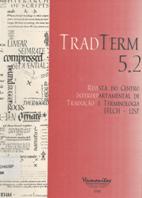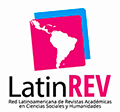Haroldo de Campos and the subject of monstrous translation
DOI:
https://doi.org/10.11606/issn.2317-9511.tradterm.1998.49524Keywords:
Translation, monstrosity, visibility.Abstract
Studies on Haroldo de Campos’s discourse on translation point out that the author, having the anthropophagy theory as a basis for his writing project, extends to translation this devouring practice. He, thus, turns the original text’s images into pretexts to elucidate translation in Brazilian literature (Souza, 1986; Bassnett, 1993; Vieira, 1994). These studies analize Haroldo’s metaphor of translation as vampirisation, in his Post-scriptum to Deus e o Diabo no Fausto de Goethe as related to the devouring of the other aimed at renewal. This work sets out to read vampirisation with an emphasis on the notion of monster, on the myth of Faust and on the link between the themes of the vampire and Faust. Translation as vampirisation, or the translator as a vampire, are here analized as discursive constructions. On the one hand, these constructions can contribute to the translator’s visibility and his assertion as the subject of translation; on the other, they might represent ambiguity and contamination in intercultural communication. The monster as a discursive construction for the translator heralds a subject who is inevitably contaminated with the ambivalent desire of annihilation and revival of the text’s co-author.Downloads
Download data is not yet available.
Downloads
Published
1998-04-18
Issue
Section
Translation
License
Autores que publicam nesta revista concordam com os seguintes termos:
- Autores mantém os direitos autorais e concedem à revista o direito de primeira publicação, com o trabalho simultaneamente licenciado sob a Licença Creative Commons Attribution BY-NC-SA que permite o compartilhamento do trabalho com reconhecimento da autoria e publicação inicial nesta revista.
- Autores têm autorização para assumir contratos adicionais separadamente, para distribuição não-exclusiva da versão do trabalho publicada nesta revista (ex.: publicar em repositório institucional ou como capítulo de livro), com reconhecimento de autoria e publicação inicial nesta revista.
- Autores têm permissão e são estimulados a publicar e distribuir seu trabalho online (ex.: em repositórios institucionais ou na sua página pessoal) a qualquer ponto antes ou durante o processo editorial, já que isso pode gerar alterações produtivas, bem como aumentar o impacto e a citação do trabalho publicado (Veja O Efeito do Acesso Livre).
How to Cite
Magalhães, C. M. (1998). Haroldo de Campos and the subject of monstrous translation. TradTerm, 5(2), 11-22. https://doi.org/10.11606/issn.2317-9511.tradterm.1998.49524








